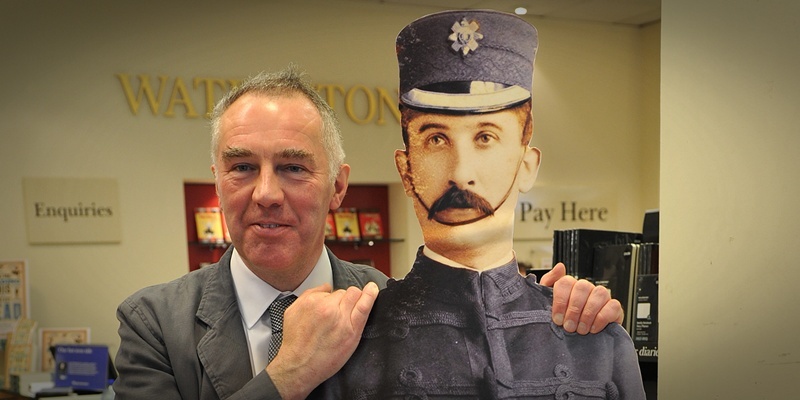Crime in 19th century Dundee is the subject of Malcolm Archibald’s new book, A Sink of Atrocity. The former Dundee Book Prize winner told Jack McKeown about bodysnatching, footpadding and the theft of a whale.
On August 23 1829 a crew of Dundee sailors carried out an audacious theft. The object they purloined was 80 feet long and weighed upwards of 50 tonnes. They had stolen a bowhead whale.
”A crew from Peterhead had harpooned a whale and were chasing it down,” Malcolm Archibald explained, ”but the Dundee ship, Thomas, raced in and stole it. There was an argument but the Dundee ship had a much larger crew so there wasn’t much the Peterhead guys could do.
”The crew of Thomas made off with the whale but the story wasn’t over. The crew of Peterhead’s Traveller complained and the case ended up at the high court in Edinburgh.
”The judge had to make an unusual ruling over who had ownership of a whale. After listening to both sides, he found the Peterhead sailors’ account more reliable and awarded them £600 compensation.”
The theft of a whale is one of the cases looked at in former Dundee Book Prize winner Malcolm Archibald’s new work, A Sink of Atrocity: Crime In 19th Century Dundee.
Born in Edinburgh Malcolm (54) studied history at Dundee University, graduating in 2001.
”I lived in the city for 10 years and worked as a postman so I know it really well,” he said.
In 2005, his debut novel Whales for the Wizard won the £6,000 Dundee Book Prize. Since then, Malcolm has combined writing with work as a history lecturer, first at Dundee College and now at Inverness College.
With high-profile criminals like body snatchers Burke and Hare and Sherlock Holmes creator Arthur Conan Doyle growing up in the city, the scurrilous misdeeds perpetrated in Edinburgh during that period have been well documented.
No one had tackled the history of crime in Dundee, however.
Malcolm decided to write about 19th century crime in Dundee after stumbling across a lively memoir by circuit judge Lord Cockburn.
”He had quite a colourful writing style. ”He described the city as a ‘sink of atrocity’ which was a phrase I thought worth investigating.”
Continued…
Malcolm delved into the city’s archives and the Central Library, digging up old court and police documents and newspaper reports to discover whether Dundee really was a sink of atrocity, as Lord Cockburn had claimed.
”Very good records were kept from about the 1820s onwards,” he says. ”From what I could discover, crime wasn’t dramatically worse than it is today. I think Lord Cockburn was using a bit of artistic licence in his description.”
In many ways crime in the 19th century was quite different. But in others it was remarkably similar.
”The basic types of crime haven’t altered at all. What we call mugging was called ‘footpadding’ and was as common then as it is now.
”But you had a few types of crime then that have pretty much fallen off the radar now. Bodysnatching doesn’t happen any more. Nor does child stripping.
”Criminals used to lure children up side streets then steal their clothes, which they would sell for a small sum of money.
”And infanticide has dropped right off. Partly that’s because of the welfare state but mainly it’s because of the huge social stigma that used to be attached to single motherhood. Some mothers would dispose of their babies rather than face the humiliation.”
The 19th century was also notable for the number of crimes perpetrated by women.
”There was a woman who stabbed someone through a glass door. And there was a woman who threw acid at her ex-boyfriend. The court treated her quite leniently though, I think because she’d been quite badly provoked.”
Then, as now, there were pitiable figures.
”There was a woman called Mags Gow who was arrested 240 times for being drunk. She wasn’t a bad person or even a criminal really, she was just an alcoholic.”
Her case was not untypical. In fact, it represents a near constant in crime throughout Scotland’s history.
In 1834 Dundee Police Commission issued the following statement:
”There is hardly a crime committed or a riot perpetrated but what may be referred to the intemperate use of ardent spirits and that mostly in the night-time.”
It’s good to know not much has changed in the last 178 years.
A Sink of Atrocity: Crime In 19th Century Dundee is out now, published by Black & White.
